OCTOBER 9, 2019
IESE Madrid
Camino del Cerro del Águila, 3
28023 Madrid
The number of persistent connections to the Internet has been consistently increasing for the last 25 years. We use the term “persistent” to convey the idea that these connections are always on and capable of facilitating unconstrained interactions and information transfer. As a consequence the digital density, defined as the percentage of connected data per unit of activity (organization, sector, city, etc.), is growing exponentially. The increase of digital density has given rise to new business models in many sectors; a phenomenon normally referred as digital transformation.
As Artificial Intelligence (AI) enters into action, digital density growth accelerates and learning processes of smart connections create new exponentially and a tremendous acceleration of the digital transformation.
A key question in this juncture is the role that different enabling1 actors (telcos, OTTs, vendors, etc.) in the digital ecosystem will choose to play. These choices will transform their own business models and will create new ones. The digital ecosystem is evolving from a linear value chain into a new complex value ecosystem, a new configuration integrating different industries. We want to discuss these issues with the following sessions:
1. Understanding and teaming with the connected client
To discuss the role of the ecosystem players in the digital transformation of Society in general we have to understand the connected client, whatever we talk about individual consumers and families or we talk about businesses and organizations. We would like to identify key segments and the value proposition (or propositions) that may satisfy their needs as digital consumers. As AI penetrates, we can understand the needed value proposition only by teaming and co-creating it with the affected clients. We would like to develop a framework to think about these issues and discuss it with Chief Digital Officers (CDO) of clients, operators, as well as digital experts of sociologist of digital transformation.
2. Business model design
Once we define the value proposition associated to different client segments, we need to understand how to transform the business of the enabling actors in the digital ecosystem, as well as what new business model should be designed, to respond to the new opportunities that emerge. The managerial choices will affect the activities, resources and capabilities that give raise to the way to deliver the value proposition while capturing enough value to survive and develop in this new environment. We need to understand which business models will dominate and capture more value in the digital ecosystem and how to reach them from the starting point of each relevant player. To discuss these issues we want to get CEOs and CDOs of relevant players in the current digital ecosystem.
3. Creating and sustaining competitive advantage
However, business models are not developed in isolation. Choices of players define business models that will be subject to competition in particular regulatory environments and effected by global (and local) trends. Winning business models will end up defining new rules of the game. In addition, the competition on business models is also affected by internal barriers to change and transformation in the organizations of active players. Finally, competition in and across digital ecosystems will establish totally new rules of the game. All these issues should be discussed with strategists, regulatory officers, business managers, regulators and legislators, associations as GSMA, etc.
IESE Madrid
Camino del Cerro del Águila, 3
28023 Madrid
IESE Industry Meetings
tel: +34 93 253 64 68
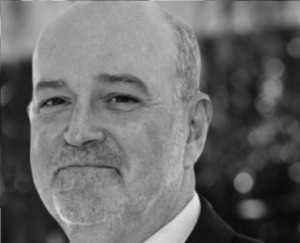
Academic Director
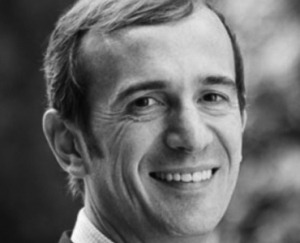
Academic Director

Speaker
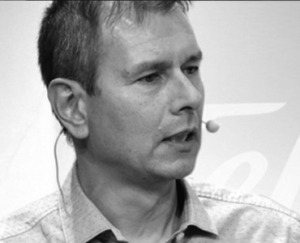
Speaker
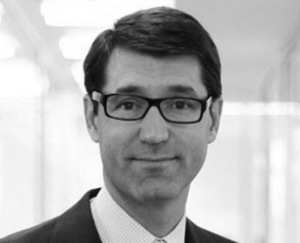
Speaker

Speaker
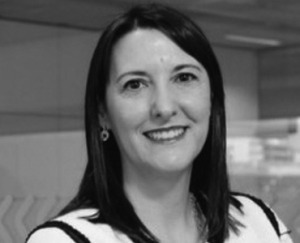
Speaker

Speaker
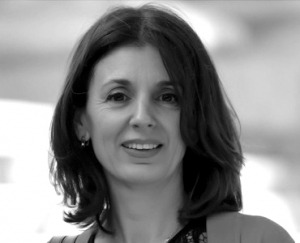
Speaker

Speaker
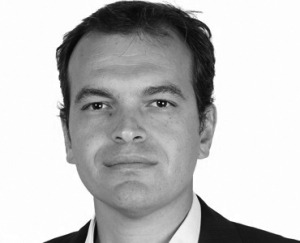
Speaker
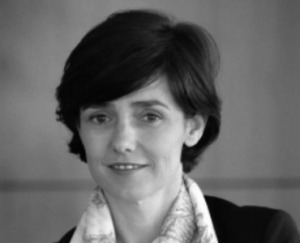
Speaker
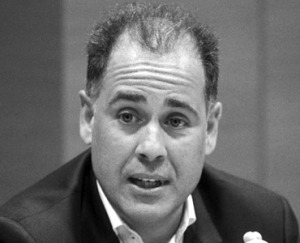
Speaker
| 08:30-09:00 | Welcome and Registration |
| 09:00-10:00 | GENERATING VALUE THROUGH AI
• Introduction: Prof. Joan E. Ricart, Academic Director of the Meeting, IESE Business School DIGITAL TRANSFORMATION IN THE SPANISH DIGITAL ECOSYSTEM Survey IESE-PENTEO on Digital Transformation. • José Luis Pérez Tejada, Director of Analysis Barcelona, PENTEO |
| 10:00-11:15 | UNDERSTANDING AND TEAMING UP WITH THE CONNECTED CLIENT
• Lourdes de la Sota, VX Customer Journey Director, SEAT Moderator: Prof. Javier Zamora, IESE Business School |
| 11:15-11:45 | Coffee-Break |
| 11:45-13:00 | CREATING AND SUSTAINING COMPETITIVE ADVANTAGE
• Richard Benjamins, Data and AI Ambassador, Telefonica Moderator: Pedro Herrera, Founder and General Manager, NovaQuality |
| 13:00-13:15 | Break |
| 13:15-14:30 | BUSINESS MODEL DESIGN
• Bosco Aranguren, Head of Digital Channels, Vodafone Moderator: Prof. Joan E. Ricart, IESE |
| 14:30-14:45 | CLOSING |
| 14:45-15:30 | Networking Lunch |
The fees for the 22 Digital Ecosystem are:
General
IESE Alumni
IESE Members and Partners
Fee includes lunch.
Payment must be made prior to program attendance.
Places are limited and registrations are processed in strict order of receipt.
2015 · The Digital Transformation of Society
2014 · The Digital Age: From Social Evolution to Business Model Transformation
2013 · A whole new world: The revolution of Big Data
2012 · Social transformation and business opportunities in the Information Society
2011 · Breaking the commoditization cycle
2010 · The audiovisual revolution impact
2009 · Looking at the future beyond the current crisis
2008 · New business models in the industry
2007 · The future of the industry at debate
2006 · Looking into the future with critical optimism
2005 · Revolution in the business models: Voice over IP, Digital TV
2003 · New business models
2002 · The way out of the crisis
1999 · Strategies to compete in an unregulated industry